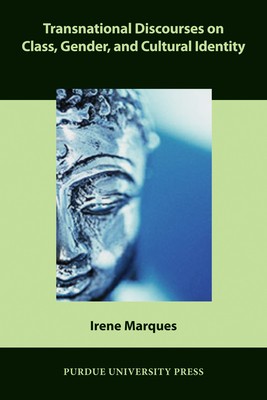
- We will send in 10–14 business days.
- Author: Irene Marques
- Publisher: Purdue University Press
- Year: 2011
- Pages: 208
- ISBN-10: 1557536058
- ISBN-13: 9781557536051
- Format: 15.2 x 22.6 x 1.8 cm, minkšti viršeliai
- Language: English
- SAVE -10% with code: EXTRA
Transnational Discourses on Class, Gender, and Cultural Identity (e-book) (used book) | bookbook.eu
Reviews
Description
This exploration of class, feminism, and cultural identity (including issues of race, nation, colonialism, and economic imperialism) focuses on the work of four writers: the Mozambican Mia Couto, the Portuguese José Saramago, the Brazilian Clarice Lispector, and the South African J. M. Coetzee. In the first section, the author discusses the political aspects of Couto's collection of short stories Contos do nascer da terra (Stories of the Birth of the Land) and Saramago's novel O ano da morte de Ricardo Reis (The Year of the Death of Ricardo Reis). The second section explores similar themes in Coetzee's Life and Times of Michael K and Lispector's A hora da estrela (The Hour of the Star). Marques argues that these four writers are political in the sense that they bring to the forefront issues pertaining to the power of literature to represent, misrepresent, and debate matter related to different subaltern subjects: the postcolonial subject, the poor subject (the "poor other"), and the female subject. She also discusses the "ahuman other" in the context of the subjectivity of the natural world, the dead, and the unborn, and shows how these aspects are present in all the different societies addressed and point to the mystical dimension that permeates most societies. With regard to Couto's work, this "ahuman other" is approached mostly through a discussion of the holistic, animist values and epistemologies that inform and guide Mozambican traditional societies, while in further analyses the notion is approached via discussions on phenomenology, elementality, and divinity following the philosophies of Lévinas and Irigaray and mystical consciousness in Zen Buddhism and the psychology of Jung.
EXTRA 10 % discount with code: EXTRA
The promotion ends in 21d.01:53:08
The discount code is valid when purchasing from 10 €. Discounts do not stack.
- Author: Irene Marques
- Publisher: Purdue University Press
- Year: 2011
- Pages: 208
- ISBN-10: 1557536058
- ISBN-13: 9781557536051
- Format: 15.2 x 22.6 x 1.8 cm, minkšti viršeliai
- Language: English English
This exploration of class, feminism, and cultural identity (including issues of race, nation, colonialism, and economic imperialism) focuses on the work of four writers: the Mozambican Mia Couto, the Portuguese José Saramago, the Brazilian Clarice Lispector, and the South African J. M. Coetzee. In the first section, the author discusses the political aspects of Couto's collection of short stories Contos do nascer da terra (Stories of the Birth of the Land) and Saramago's novel O ano da morte de Ricardo Reis (The Year of the Death of Ricardo Reis). The second section explores similar themes in Coetzee's Life and Times of Michael K and Lispector's A hora da estrela (The Hour of the Star). Marques argues that these four writers are political in the sense that they bring to the forefront issues pertaining to the power of literature to represent, misrepresent, and debate matter related to different subaltern subjects: the postcolonial subject, the poor subject (the "poor other"), and the female subject. She also discusses the "ahuman other" in the context of the subjectivity of the natural world, the dead, and the unborn, and shows how these aspects are present in all the different societies addressed and point to the mystical dimension that permeates most societies. With regard to Couto's work, this "ahuman other" is approached mostly through a discussion of the holistic, animist values and epistemologies that inform and guide Mozambican traditional societies, while in further analyses the notion is approached via discussions on phenomenology, elementality, and divinity following the philosophies of Lévinas and Irigaray and mystical consciousness in Zen Buddhism and the psychology of Jung.


Reviews